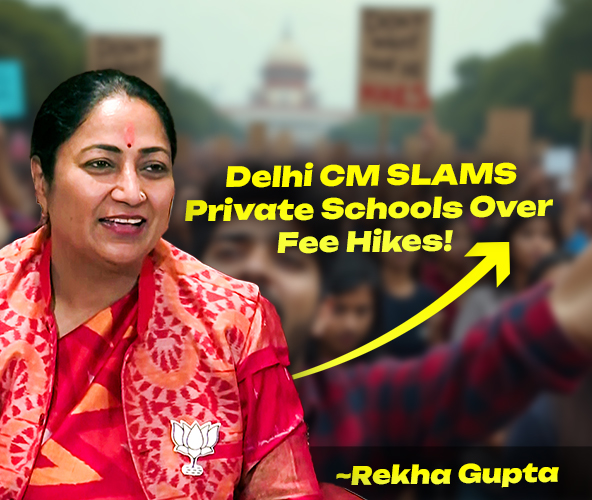
Harvard Faces $2.2 Billion Federal Funding Freeze Amid Trump Administration Crackdown on Campus Autonomy
CAMBRIDGE, MASSACHUSETTS — In a dramatic escalation of the Trump administration's ongoing campaign to reshape American higher education, the federal government has frozen over $2.2 billion in grants and contracts allocated to Harvard University. The move, announced last Friday, is part of a broader crackdown targeting elite institutions accused of failing to align with controversial new federal directives on admissions, hiring, free speech, and protest management.
The Harvard federal funding suspension marks one of the most consequential moments in the widening conflict between the federal government and American universities, raising critical questions about university autonomy under threat in the USA.
Federal Demands Ignite National Controversy
At the center of the standoff is a letter from the Trump administration outlining a series of non-negotiable mandates that institutions must fulfill to retain access to federal funds. These demands include:
- Implementing “merit-based” admissions and hiring policies
- Conducting a full audit of students, faculty, and leadership concerning their views on diversity
- Enforcing a ban on face coverings, aimed at curbing pro-Palestinian protests
- Withdrawing recognition and funding from student organizations allegedly supporting illegal activities or harassment
The administration has justified these requirements as necessary safeguards against what it describes as “unchecked antisemitism” on campus. However, critics argue that these sweeping mandates bear the hallmarks of political intrusion and violate long-standing protections around academic governance.
The implications of the Trump administration’s university crackdown extend far beyond Harvard, signaling a growing willingness to wield funding as leverage in shaping university policy nationwide.
Harvard’s Leadership Pushes Back: “This Is Federal Overreach”
In response to the announcement, Harvard University President Alan Garber issued a strongly worded rebuttal to the administration’s demands. In a letter addressed to students, faculty, and alumni, Garber labeled the funding freeze an “unprecedented attack” on academic freedom and legal autonomy.
“No government — regardless of which party is in power — should dictate what private universities can teach, whom they can admit and hire, and which areas of study and inquiry they can pursue,” Garber wrote.
He affirmed that Harvard had already implemented internal reforms to address discrimination, including antisemitism. However, Garber maintained that the administration’s latest directives “exceed the statutory authority” granted under Title VI of the Civil Rights Act, which prohibits discrimination based on race, color, or national origin in institutions receiving federal support.
Garber’s remarks reflect growing concern among education leaders that the Trump administration’s university crackdown is less about lawful compliance and more about politicizing campus governance through financial threats.
Ivy League Under Siege: A Pattern Emerges
Harvard is not alone in this political confrontation. In recent months, the Trump administration has paused funding to multiple Ivy League institutions, including the University of Pennsylvania, Brown University, and Princeton. Earlier pressure tactics also led Columbia University to alter its protest and hiring policies.
Federal officials argue these moves are aimed at countering the spread of antisemitic rhetoric on campuses — a charge frequently linked to pro-Palestinian activism.
University leaders, however, maintain that such rhetoric is being addressed within academic policy and free expression. They warn that the current approach undermines the foundational principles of academic freedom.
Observers say the broader strategy reflects a political agenda aimed at reshaping higher education to align with federal ideology, blurring the lines between college funding and political influence.
Community Response: Protests, Petitions, and a Legal Challenge
The backlash to the funding freeze was swift and organized. Over the weekend, Harvard alumni, students, and faculty joined Cambridge residents in campus-wide protests decrying what they described as an authoritarian assault on institutional independence.
Alumni also released a public statement urging the university to fight back through legal means.
“Harvard stood up today for the integrity, values, and freedoms that serve as the foundation of higher education,” said Anurima Bhargava, a civil rights attorney and one of the signatories.
In parallel, the American Association of University Professors (AAUP) announced that it had filed a lawsuit against the Trump administration in federal court, claiming the grant freeze violates procedural norms and undermines academic protections.
The suit, filed last Friday, contends that the administration failed to follow legal protocols in suspending funds, including notifying Congress and providing Harvard an opportunity to respond.
“These sweeping yet indeterminate demands are not remedies targeting the causes of any determination of noncompliance with federal law,” the lawsuit states. “Instead, they overtly seek to impose on Harvard University political views and policy preferences advanced by the Trump administration.”
The Harvard lawsuit against the Trump administration may now serve as a critical test case in determining how far the federal government can go in conditioning support for higher education on ideological compliance.
Academic Freedom on the Line
As political and legal tensions intensify, higher education experts warn that the precedent set in this case could shape the future of academic governance in the U.S. for years to come.
The stakes are particularly high at Harvard, where federal funding supports research, public service initiatives, and educational programs. The $2.2 billion in federal support at risk represents a significant portion of the university’s operating budget — and underscores just how much leverage the government can wield over even the most elite institutions.
But beyond Harvard, the deeper issue remains whether universities can maintain independence in the face of mounting political pressure. As lawmakers, legal experts, and education advocates weigh in, a defining question emerges: Can federal funding be used as a tool for ideological enforcement, or must it remain neutral and bound by law?
The clash has already ignited a broader national debate about university autonomy under threat in the USA — with implications for free speech, academic research, and institutional governance across the country.
Conclusion: A Precedent in the Making
The confrontation between Harvard University and the Trump administration represents far more than a dispute over financial aid or campus policy. It may serve as the legal and moral battleground over the limits of government authority in academic spaces.
With litigation underway, public protests mounting, and political fallout looming, this case is poised to define the next chapter in the relationship between universities and the federal government.
As other institutions watch closely, Harvard’s resistance could shape how American academia navigates an increasingly fraught political landscape, where college funding and political influence are becoming dangerously intertwined.
The message is clear for now: The fight for academic freedom has entered a new era, and the outcome could alter the very fabric of U.S. higher education.



